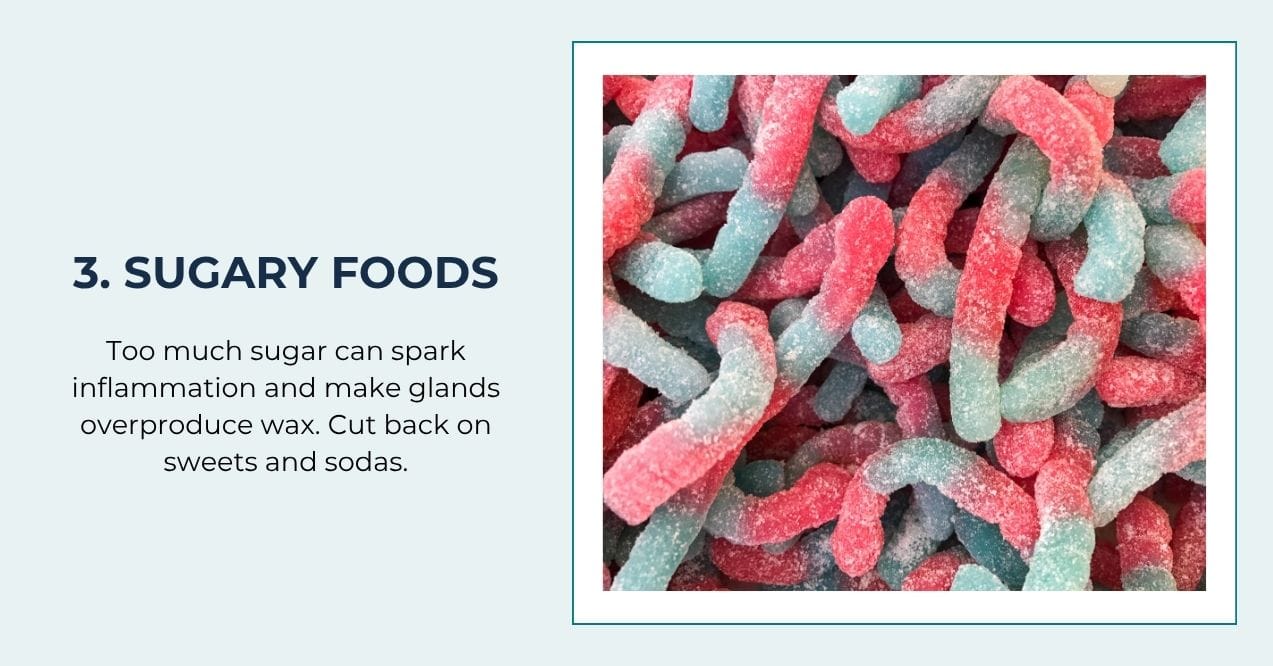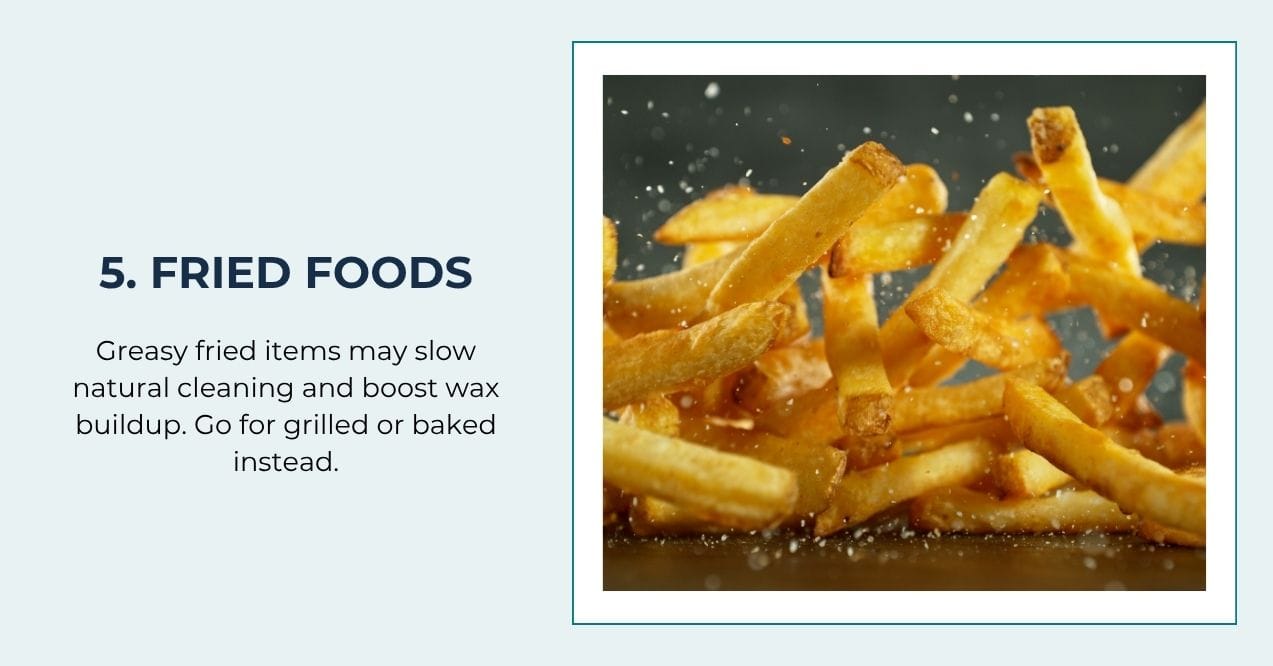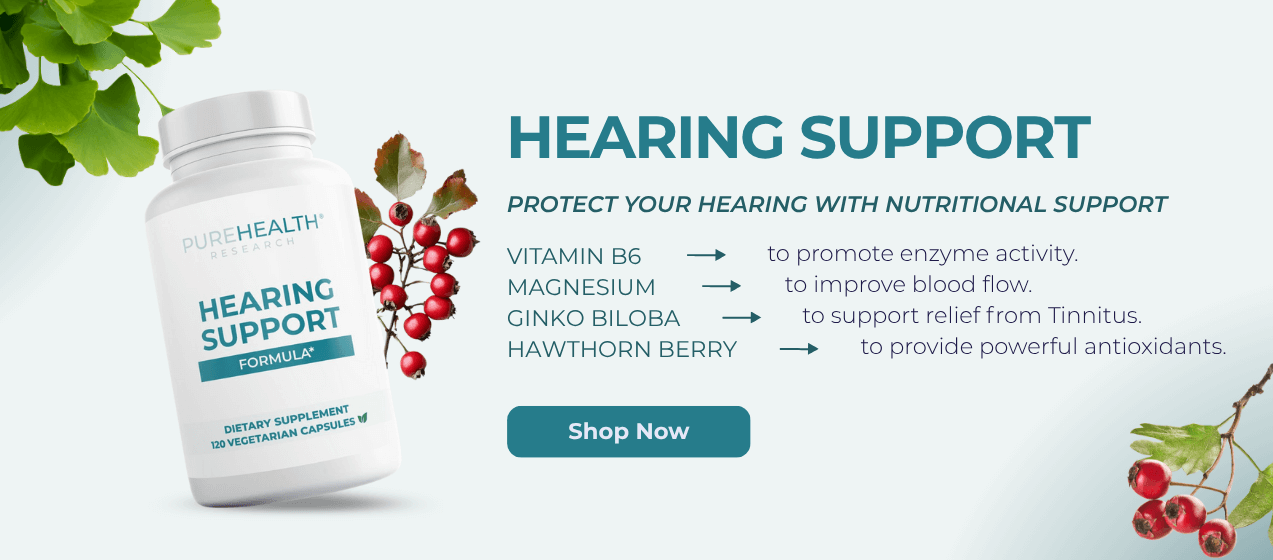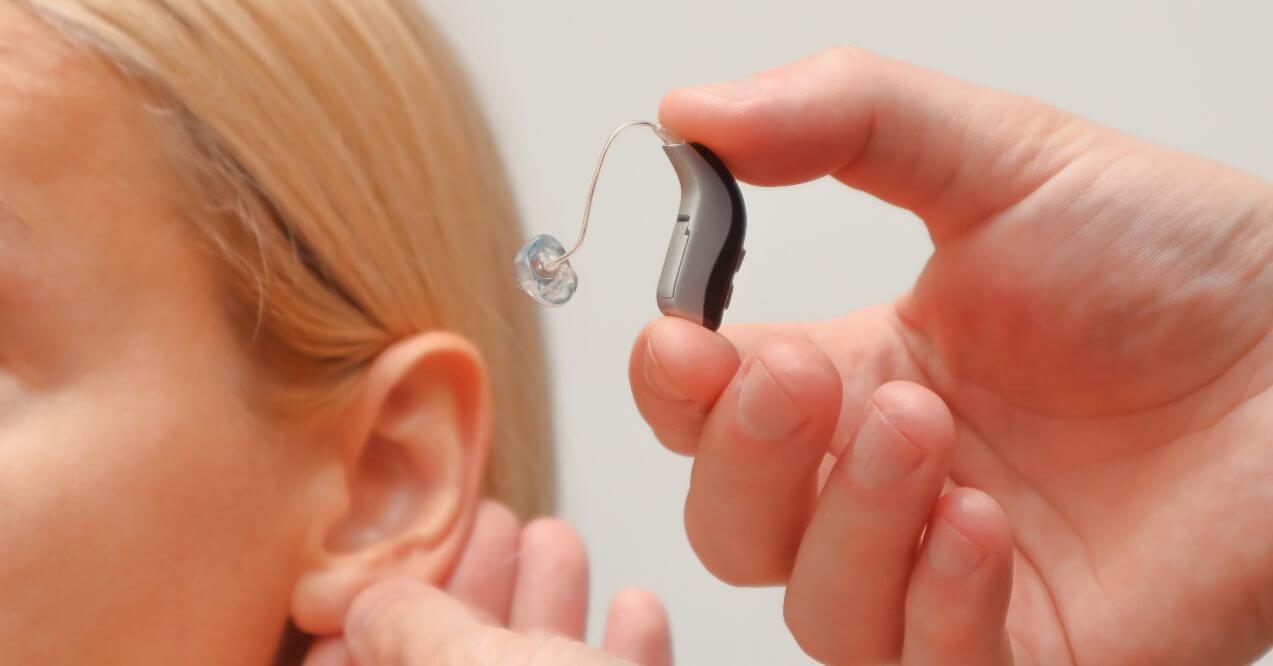8 Foods That Cause Ear Wax Buildup
Discover common foods that cause ear wax buildup and simple tips to support healthy, balanced ear wax levels naturally.


Can the foods you eat really affect ear wax buildup? In short, the answer is yes. While ear wax is a natural substance that helps protect, clean, and moisturize the ears, certain dietary choices may influence how much wax your body produces. Some people may notice that their ears feel fuller or blocked more often, and this could be connected to specific foods that cause ear wax to build up faster.
Understanding how food impacts ear health can help you make better choices and support your body’s natural balance. In this article, we’ll explore the foods that cause ear wax buildup and simple steps you can take to manage it.
Why Does the Body Produce Ear Wax?
Ear wax, also known as cerumen, is a natural substance made by small glands in the ear canal. It plays an essential role in keeping your ears clean and healthy. Many people think ear wax is just waste, but it actually has important protective functions.
Here’s why your body produces ear wax:
- Traps dust, dirt, and small particles that could irritate or damage the ear.
- Helps block bacteria and other invaders from moving deeper into the ear canal.
- Prevents moisture from collecting inside the ear, which helps keep the environment balanced.
- Keeps the ear canal lubricated, preventing dryness and itchiness.
While ear wax is helpful, sometimes the body produces too much. Overproduction can cause ear wax to build up, which may lead to:
- A clogged or “full” feeling in the ear
- Reduced hearing
- Occasional discomfort
8 Foods That Cause Ear Wax Buildup
While ear wax is a natural part of ear health, certain foods may lead to excess production. Studies and health experts suggest that some foods that cause ear wax can also increase mucus or trigger bodily responses that may contribute to ear wax buildup. Let’s explore which foods may have this effect and why they matter for your ear health.
1. Dairy Products (Milk, Cheese, Yogurt)

There is a potential link between milk and ear wax production. Dairy products like milk, cheese, and yogurt are known to encourage mucus production in some people, especially those who may have a mild sensitivity to dairy.
When the body produces more mucus, it may also trigger increased ear wax buildup as part of the body’s natural protective response. This combination can sometimes make ears feel clogged or uncomfortable. People who frequently experience excess ear wax may want to monitor their dairy intake to see if there’s a noticeable connection.
2. Fatty Foods

Fatty foods, especially those high in unhealthy fats, may play a role in stimulating ear wax production. These foods can contribute to excess mucus and may encourage the body to produce thicker secretions, including wax.
Examples of fatty foods that may contribute:
- Processed snacks
- High-fat meats
A diet rich in these foods may lead to sluggish natural drainage and buildup over time. Supporting your ear health may involve balancing your fat intake with lighter, nutrient-rich options.
3. Sugary Foods

Eating a lot of sugary foods may promote low-grade inflammation in the body, which could trigger the glands in the ear to work harder. When this happens, the body might produce more wax as part of its natural defense process.
Sugary foods to watch for include:
- Candy and sweets
- Sugar-loaded drinks
- Baked goods with added sugar
Excessive sugar intake may also lead to thicker mucus, which can contribute to earwax buildup. Choosing whole, less processed foods may help support the body’s natural balance.
4. Spicy Foods

Spicy foods like chili peppers, hot sauces, and curries can increase mucus production in the body. This effect is often felt right away when your nose starts to run after eating something spicy.
This boost in mucus can sometimes lead to an increase in ear wax as well, since the body’s protective pathways become more active.
Common spicy foods include:
- Hot peppers
- Spicy curries
- Hot sauces
While occasional spicy meals are generally fine, frequent consumption might contribute to noticeable wax buildup in sensitive individuals.
5. Fried Foods

Fried foods are typically high in oils, fats, and additives that may encourage excess production of ear wax. Similar to other fatty foods, fried items can promote mucus buildup, which may also signal the body to increase wax production as a protective response.
Common fried foods that may contribute include:
- French fries
- Fried chicken
- Deep-fried snacks
These foods may slow the body’s natural cleaning process, allowing wax to build up more easily. Choosing baked or grilled alternatives may help support a healthier balance in the body, including ear health.
6. Processed Meats

Processed meats, such as sausages, bacon, and deli meats, often contain additives, preservatives, and high salt levels. These substances may trigger the body to produce more mucus, which can indirectly lead to increased ear wax production.
Some processed meats to watch for:
- Salami
- Hot dogs
- Cured meats
Regular consumption of these meats may encourage more buildup in people who are prone to excess wax. Opting for fresh, lean proteins may be a better choice for those mindful of ear wax concerns.
7. Alcohol

Alcohol can have a dehydrating effect on the body, which may cause ear wax to become drier and harder over time. When wax dries out, it may not move out of the ear canal as easily, potentially leading to buildup.
Additionally, some people may notice their bodies produce more wax in response to frequent alcohol intake as the system tries to balance moisture levels.
Being mindful of alcohol consumption and staying well-hydrated may help maintain a healthier ear environment.
8. Caffeine

Drinking too much caffeine, especially from coffee, energy drinks, or soda, can also dehydrate the body. Dehydration may cause ear wax to lose its soft, natural texture, making it harder and more likely to accumulate.
Common high-caffeine sources include:
- Coffee
- Black tea
- Energy drinks
Moderating caffeine intake and drinking plenty of water throughout the day can help the body maintain proper moisture levels, supporting the natural movement of ear wax.
How to Manage Ear Wax Buildup
Managing ear wax buildup can often be simple with a few thoughtful changes. If you suspect that your diet or lifestyle may be contributing, adjusting your daily habits can support your body’s natural ear cleaning process. Here are some practical steps you can take to help keep ear wax under control.
Diet
What you eat can directly impact ear wax production. If you’ve noticed more buildup, consider reducing foods that cause ear wax such as dairy, fried items, and sugary snacks. Limiting these may help your body maintain a healthier balance.
Instead, aim to include more whole foods like fruits, vegetables, and lean proteins. These options can support the body’s natural systems and may help keep ear wax at manageable levels.
Ear Cleaning
Keeping your ears clean is important, but it’s essential to use safe methods. Avoid inserting cotton swabs into the ear canal, as this can push wax deeper and cause blockages.
Safer ear care tips include:
- Using over-the-counter ear drops to soften wax
- Gently wiping the outer ear with a soft cloth
- Visiting a healthcare provider for professional ear cleaning
Proper ear hygiene can help prevent excessive buildup and support long-term ear comfort.
Hydration
Staying well-hydrated is key to maintaining soft, manageable ear wax. When the body lacks water, ear wax can become dry, hard, and more likely to accumulate.
Drinking enough fluids throughout the day can:
- Support the natural movement of ear wax
- Help prevent discomfort from hardened wax
- Contribute to overall ear health
Hydration is also important when considering the best supplements for tinnitus, as a balanced, well-hydrated body may help supplements work more effectively in supporting ear function. Prioritizing water intake is a simple but powerful step for ear care.
Support Ear Health with the Right Supplements
Along with healthy habits, the right supplements can help support your ear health naturally. Hearing Support Formula is specially designed to nourish the ears and help maintain balance in the auditory system. It provides key nutrients that can support comfortable ear function and may help manage common issues like ear wax buildup.
The formula contains:
- Vitamin C – supplies antioxidant support that helps protect the ear canal from everyday stressors.
- Magnesium – assists healthy fluid balance, keeping ear wax naturally soft and easier to manage.
- Ginkgo Biloba – supports steady circulation so oxygen and nutrients reach the inner ear.
Together, these ingredients help your auditory system stay resilient as you age. Regular use may promote clear, comfortable hearing, reduce the chance of stubborn wax buildup, and keep the tiny hair-like cells in your inner ear functioning at their best.

For adults who want an easy way to support overall ear health, Hearing Support Formula can be a simple, reassuring addition to a daily routine.
Conclusion
Ear wax is a natural and important part of keeping your ears clean and protected. However, certain foods that cause ear wax may encourage your body to produce more than needed, leading to buildup and occasional discomfort. By making small changes to your diet, practicing safe ear cleaning habits, staying well-hydrated, and supporting your ear health with the right supplements, you can help your ears stay balanced and comfortable. Simple daily choices can make a big difference in promoting long-term ear health.
Foods like dairy, fried foods, processed meats, sugary snacks, and spicy dishes may contribute to excess ear wax by increasing mucus production or triggering the body to create more wax as part of its natural defenses.
Foods rich in antioxidants and healthy fats, such as leafy greens, berries, nuts, and oily fish, may support overall ear health by promoting circulation and helping the body maintain balanced wax levels, though they won’t directly remove ear wax.
The body naturally moves old ear wax out of the ear canal over time. Softening agents like warm olive oil or ear drops may help loosen wax, but no foods directly break down or “eat away” ear wax.
Sign up for our Healthy Living newsletter!
Advertisement. This site offers health, wellness, fitness and nutritional information and is designed for educational purposes only. You should not rely on this information as a substitute for, nor does it replace, professional medical advice, diagnosis, or treatment. If you have any concerns or questions about your health, you should always consult with a physician or other health-care professional. Do not disregard, avoid or delay obtaining medical or health related advice from your health-care professional because of something you may have read on this site. The use of any information provided on this site is solely at your own risk.







